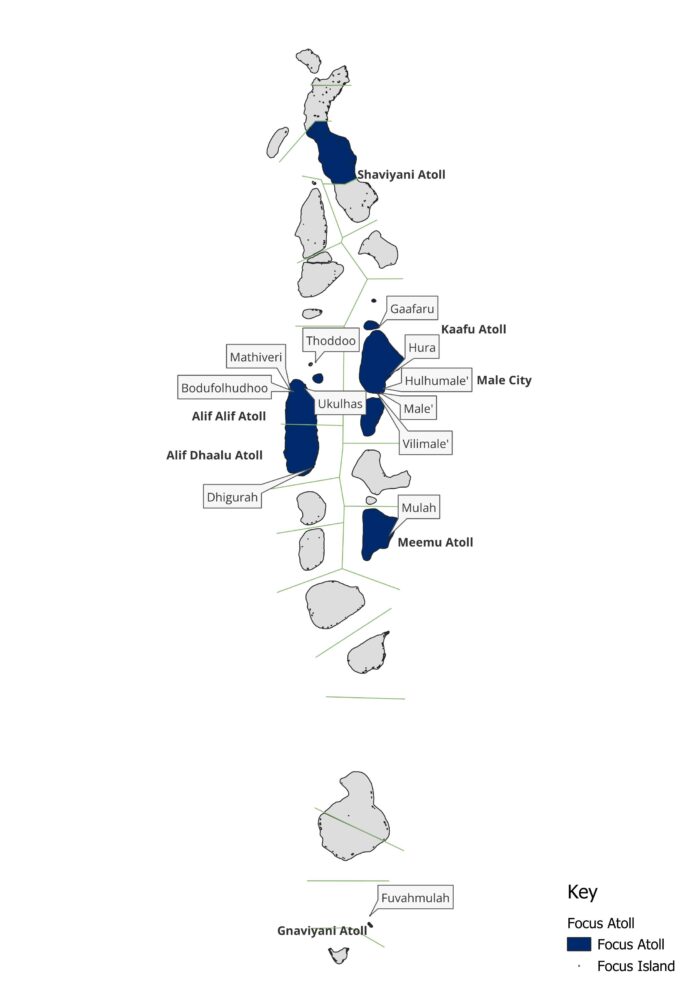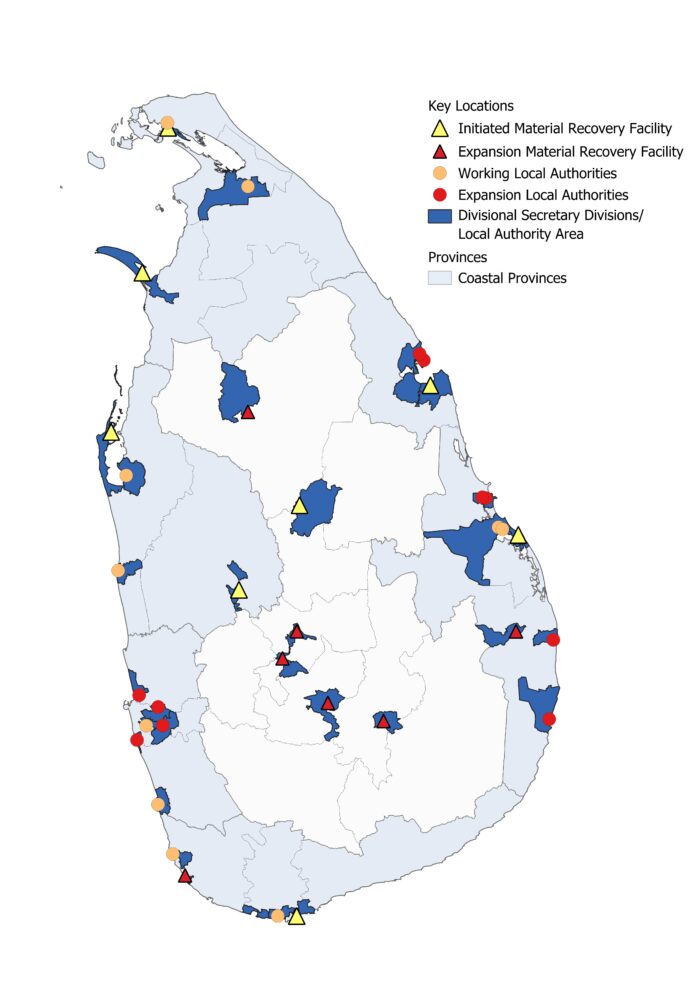The USAID Ocean Plastics Reduction Activity is a five-year initiative (2022–2027) designed to address the growing challenge of plastic pollution in the Democratic Socialist Republic of Sri Lanka and the Republic of Maldives.
Status:
Active
Region:
Asia
Country:
Maldives
Sri Lanka
Key Documents:
Issues:
- Biodiversity
- Climate Mitigation
- Climate Resilience and Adaptation
- Economic Growth
- Energy and Environment
- Gender and Marginalized Communities
- Gender and Women’s Empowerment
Background
The USAID Ocean Plastics Reduction Activity is a five-year initiative (2022–2027) designed to address the growing challenge of plastic pollution in Sri Lanka and the Maldives. The Activity seeks to mitigate the environmental and health impacts of plastic waste by decreasing reliance on virgin plastics and improving integrated solid waste management (SWM) practices. With Sri Lanka and the Maldives facing significant challenges in managing plastic waste, this initiative aims to foster sustainable, long-term solutions that reduce the flow of plastics into the oceans.


Approach
The Activity is implemented through a consortium led by RTI International, with key partners including The Asia Foundation (TAF), Live and Learn Environmental Education (LLEE), and Planet Partnerships (PP). The Activity’s strategic approach is built around four core objectives:
- Reduce Reliance on Virgin Plastic Inputs and Products: The Activity promotes sustainable alternatives to virgin plastics, supports the adoption of 3Rs (reduce, reuse, recycle) behaviors, and encourages the implementation of Extended Producer Responsibility systems to minimize plastic waste.
- Professionalize, Improve, and Expand SWM Services: By enhancing the capacity and professionalization of waste management services, the Activity aims to reduce the volume of plastic waste entering the environment and ensure that communities have access to reliable and sustainable SWM services.
- Empower Communities to Drive Local SWM Solutions: The Activity empowers local communities to take ownership of waste management through social behavior change communication, leadership training, and the establishment of community-driven SWM initiatives, fostering a culture of environmental stewardship.
- Strengthen the Enabling Environment for SWM: The Activity works to create a supportive policy and regulatory environment that facilitates sustainable SWM practices, including the development of public-private partnerships and alignment with national and regional strategies.
Cross-Cutting Themes
The Activity integrates several cross-cutting themes to ensure comprehensive and inclusive outcomes:
- Private Sector Engagement: The Activity involves the private sector in all aspects of SWM, from investing in innovative technologies and practices to supporting community-driven waste management solutions. By fostering partnerships with businesses, the Activity promotes sustainable market-based solutions that contribute to a circular economy.
- Gender Equality and Social Inclusion: The Activity emphasizes the importance of gender equality and social inclusion in all its interventions. By targeting vulnerable and marginalized groups, including women, youth, and informal waste workers, the Activity seeks to ensure that the benefits of improved SWM are equitably distributed across all segments of society.
Outcomes
The USAID Ocean Plastics Reduction Activity is expected to yield significant and lasting impacts, including:
- A substantial reduction in the volume of plastic waste entering the environment, particularly the oceans surrounding Sri Lanka and the Maldives.
- Widespread adoption of sustainable waste management practices across households, communities, and businesses.
- Professionalization and expansion of SWM services, leading to improved waste management infrastructure and service delivery.
- Enhanced community ownership and participation in waste management initiatives, resulting in more sustainable and locally driven solutions.
- A strengthened enabling environment that supports the long-term sustainability of SWM practices, facilitated by supportive policies and private sector investments.
Geographic Focus
The Activity is strategically focused on key regions in both Sri Lanka and the Maldives.
In Sri Lanka, the Activity targets five coastal provinces: Western, North Western, Northern, Eastern, and Southern, chosen based on their vulnerability to ocean plastic pollution and the potential impact of project interventions.
In the Maldives, the Activity is concentrated in Malé City and five atolls: Kaafu, Alif Alif, Alif Dhaalu, Haa Alif, and Gnaviyani, selected for their significant potential to benefit from improved SWM practices and reduced plastic waste.
Partners
The project’s consortium (The Asia Foundation, Live and Learn Environmental Education, and Planet Partnerships) is led by RTI International.

